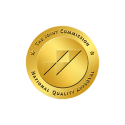Revision Surgery Turkey

Revision Surgery in Turkey: A Comprehensive Overview
Revision surgery in Turkey begins with an initial consultation and a thorough medical evaluation to determine the patient’s suitability for the procedure. This step is crucial for understanding the reasons behind the failure or complications of the initial surgery. Various pre-operative tests are conducted to assess the patient’s overall health and readiness for revision surgery. The procedure itself may involve adjusting or replacing components of the previous bariatric surgery, or converting to a different type of bariatric procedure, depending on the patient’s specific needs. This surgery is performed using advanced laparoscopic techniques in modern, well-equipped medical facilities by highly experienced bariatric surgeons. Post-operative care includes regular follow-up visits, nutritional counseling, and support for lifestyle modifications to ensure long-term success and prevent further complications.
Revision Surgery Steps
1- Assessment and Diagnosis: Detailed review of the patient’s medical history, including the original surgery and any subsequent issues.
2- Consultation and Planning: Discussion between the surgeon and the patient about the findings, potential risks, benefits, and alternatives to revision surgery.
3- Preparation: Preoperative instructions may include dietary restrictions, medication adjustments, and cessation of smoking or alcohol.
4- Anesthesia: Administration of anesthesia, chosen based on the patient’s health, the complexity of the surgery, and the expected duration of the procedure.
5- Surgical Procedure: The specific steps of the procedure will depend on the type of revision being performed.
6- Postoperative Care: Closing of the surgical site with sutures, staples, or other methods.
Types of Obesity Revision Surgery

Conversion Surgery: This involves changing the original bariatric procedure to a different type. For example, converting from an adjustable gastric band to a Roux-en-Y gastric bypass or from a gastric sleeve to a biliopancreatic diversion with duodenal switch. Conversion is often considered when the original surgery type is not effective enough or when there are complications that necessitate a different surgical approach.
Correction Surgery: This type of surgery is performed to correct any issues or complications arising from the initial procedure. For instance, if there’s a hernia, slippage of a gastric band, or an ulcer, correction surgeries aim to fix these specific problems without necessarily changing the bariatric surgery method.
Reversal Surgery: In some cases, patients may require or request the reversal of their bariatric surgery. This is typically more challenging and is considered mainly when there are severe complications or adverse effects from the initial surgery. Reversals are complex and may not always return the anatomy to its pre-surgery state or result in weight regain.
Re-sleeve or Re-bypass: For patients who have had a gastric sleeve or gastric bypass and experienced weight regain, a second procedure of the same type (e.g., making the sleeve smaller again or revising the bypass) can be performed to enhance the restrictive component and help with additional weight loss.
Band Over Bypass or Sleeve: For patients who have undergone a gastric bypass or sleeve gastrectomy and have not achieved satisfactory weight loss or have experienced weight regain, an adjustable gastric band can be placed around the upper portion of the stomach to further restrict food intake.
Recovery After Revision Surgery
1. Immediate Postoperative Care
- Pain Management: Pain might be more intense compared to the first surgery. Effective pain management strategies, including medications, are crucial.
- Monitoring for Complications: Close monitoring for signs of infection, bleeding, or other immediate postoperative complications is essential.
2. Hospital Stay
- The length of the hospital stay can vary widely depending on the type of revision surgery and the individual’s overall health. Some complex revisions may require longer hospitalization to ensure adequate recovery and monitoring.
3. Physical Rehabilitation
- Mobility and Strength: Rehabilitation may be necessary to regain mobility and strength, especially after orthopedic revisions. The intensity and duration of physical therapy could be greater than after the first surgery.
- Specialized Rehabilitation Programs: For certain types of revisions, such as those involving joint replacements or spinal surgeries, tailored rehabilitation programs are critical for recovery.
4. Home Recovery
- Activity Restrictions: Patients may face stricter activity restrictions initially to protect the surgical site and ensure proper healing.
- Wound Care: Proper care of surgical incisions is crucial to prevent infection and promote healing.
- Support System: A strong support system at home can help manage the challenges of post-surgery recovery, including assistance with daily activities and emotional support.
5. Follow-up Care
- Regular Check-ups: Frequent follow-up appointments allow the surgeon to monitor healing, address any concerns, and adjust the recovery plan as needed.
- Monitoring for Long-term Complications: Because revision surgeries can have a higher risk of complications, long-term monitoring is important.
6. Adjusting Expectations
- Recovery Timeline: Patients should be prepared for a potentially longer recovery period and understand that progress may be gradual.
- Outcome Expectations: It’s important to have realistic expectations about the outcomes of revision surgery, which might include limitations in function or aesthetics, depending on the type of surgery and individual circumstances.
7. Lifestyle Adjustments
- Diet and Nutrition: A healthy diet can support healing. Some patients may need to follow specific dietary guidelines based on their surgery.
- Avoiding Certain Activities: Activities that could jeopardize the surgical outcome may need to be avoided or modified long-term.
8. Emotional and Psychological Support
- Mental Health: The prolonged recovery process and the stress of undergoing multiple surgeries can affect mental health. Seeking support from mental health professionals, support groups, or loved ones is important.

Need Help? Contact Us!
7/24 Obesity Help Desk
Revision Surgery Turkey Cost 2025
Here is a general estimate of the cost of some common revision surgeries in Turkey in 2025:
- Revision rhinoplasty: $3,500 to $7,500
- Revision breast augmentation: $4,332 to $7,039
- Scar revision: $2,381 and above
- Liposuction revision: $3,000 and above
| Region | Average Revision Surgery Cost |
 Turkey Turkey | $2,500 – $7,000 or more |
 USA USA | $7,000 – $12,000 or more |
 Canada Canada | $7,000 – $12,000 or more |
 UK UK | £6,000 – £8,000 or more |
 Australia Australia | AUD 7,000 – AUD 15,000 or more |
 Germany Germany | €6,000 – €10,000 or more |
 France France | €6,000 – €10,000 or more |
Why does Revision Surgery Cost in Turkey Cheap?
- Economic Factors: The cost of living and operational costs in Turkey are generally lower than in many Western countries. This economic difference allows for lower prices for various services, including medical procedures.
Currency Exchange Rates: For many international patients, especially those from countries with stronger currencies, the exchange rate can make medical procedures in Turkey more affordable.





Revision Surgery Before and After Photos
Submit your request for access to before and after photos to see actual patient results from our many cosmetic procedures and treatments at Dr. HE Clinic.


Revision Surgery Turkey Reviews

Posted on
Truspilot
Posted on
TruspilotIs it Safe To Have A Revision Surgery in Turkey?
- Lower Cost: Turkey offers significantly lower costs compared to many developed countries.
- Expertise: Many Turkish clinics boast experienced surgeons and modern facilities.
- Accessibility: Turkey is a popular medical tourism destination with convenient travel options.
Frequently Asked Questions About Revision Surgery
Does Health Insurance Pay for the Revision Surgery?
Health insurance coverage for revision surgery depends on whether the procedure is deemed medically necessary, the type of surgery, and the specifics of the insurance policy. Medically necessary revisions are more likely to be covered than elective or cosmetic revisions. It’s important to check your insurance policy or contact your insurance provider for detailed information.
How Long Does Revision Surgery Take?
Is Revision Surgery Painful?
QUALITY CERTIFICATES

















Posted on
Truspilot